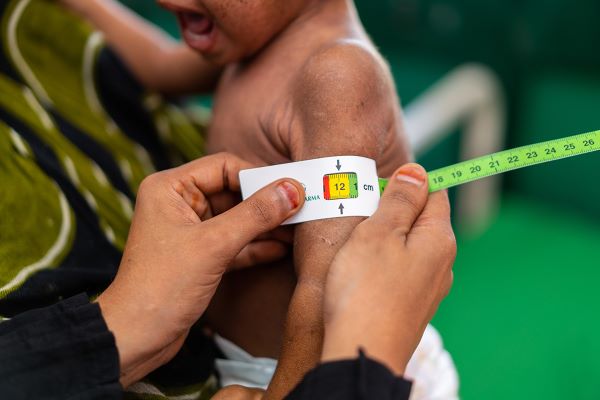A transformative partnership between the World Health Organization (WHO) and the United Arab Emirates is bringing renewed hope to the island of Socotra, Yemen, where malnutrition and fragile health systems have placed thousands of lives at risk.
The joint initiative, led by WHO and the Khalifa bin Zayed Al Nahyan Foundation, an affiliate of Erth Zayed Philanthropies, is now underway, aiming to rescue the island’s most vulnerable from the grips of a worsening humanitarian crisis.
Socotra, home to more than 83,000 people, is facing a growing health emergency. Repeated outbreaks of cholera, measles, and dengue fever have deepened the public health burden on an already weakened healthcare system.
With only 32 health facilities to serve the entire population, and no central public health laboratory or drug warehouse, the island’s capacity to respond to emergencies has been severely undermined.
Health professionals, essential medicines, and critical equipment are in short supply, and this has had a devastating impact on children under five, pregnant women, and nursing mothers.
According to global health data, 10.9% of children under five on the island suffer from acute malnutrition, a rate considered serious, while 1.6% endure severe acute malnutrition, a level defined as alarming by international health standards.
Compounding this crisis is the fact that nearly 93% of pregnant women are anemic, while 37% of children have not received a single vaccine dose.

In response, WHO and the UAE have launched a two-year, multi-pronged programme designed to reduce health and nutrition-related mortality by at least 20%.
The effort will focus on expanding maternal and child health services in 80% of Socotra’s health facilities, equipping local clinics to handle disease outbreaks and natural disasters, and enhancing health data reporting systems to enable real-time tracking of illnesses and resource allocation.
“This initiative reflects our collective commitment to improving health outcomes and building sustainable, resilient systems in crisis-affected regions,” said Dr. Ferima Coulibaly-Zerbo, WHO’s Acting Representative in Yemen.
“Together with the UAE and Yemeni health authorities, we are laying a foundation for long-term health security and equity for the people of Socotra,” he added.
The programme began with a baseline health and nutrition survey conducted at the end of May 2025. This data will guide targeted interventions, such as the development of a multisectoral coordination platform that will facilitate quarterly strategic planning between WHO, the UAE, the Yemeni Ministry of Public Health, and other key partners.
Mohamed Haji Al Khouri, Director-General of the Khalifa bin Zayed Al Nahyan Foundation, emphasized the moral responsibility behind the initiative.
“This effort is rooted in the humanitarian legacy of the late Sheikh Zayed bin Sultan Al Nahyan and the vision of His Highness Sheikh Mohamed bin Zayed Al Nahyan. We are committed to finding effective, long-term solutions to the pressing health and nutrition issues facing women and children in Socotra, in collaboration with the WHO,” he said.
The programme is also expected to improve emergency readiness through better-trained medical staff and an improved drug supply chain.
Public awareness campaigns will be launched to address food security and nutrition education, while disease surveillance will be enhanced to allow quicker responses to emerging threats.
By reinforcing health systems and targeting the root causes of malnutrition, the WHO-UAE partnership offers more than just aid, it offers a future. For the mothers and children of Socotra, it signals a lifeline, a strategic investment in survival, resilience, and dignity.

